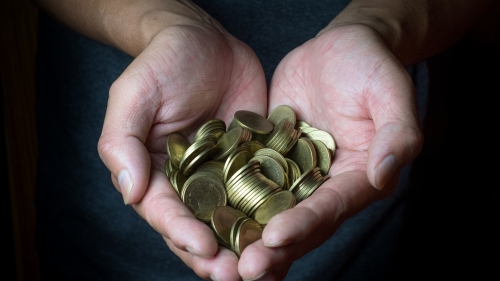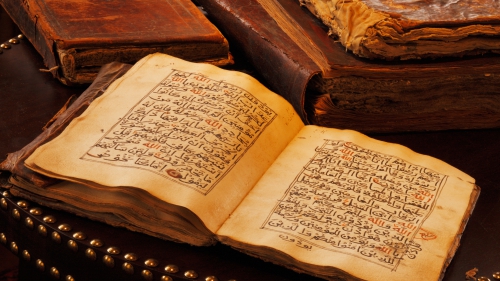Medical Issues and Qur'an

Most of us are intrigued by the connection between contemporary medicine and the holy Muslim book, the Qur'an, especially the analysis of hadiths and scientifically proven facts. There are a lot of misinterpretations and misconceptions between medicine and the Qur'an along with misuse from both medical and religious points of view. Therefore, it is very important to clear up the interconnectedness between the two. Topics of interest, which shall be discussed in this paper are 'mother and child', 'nutrition', 'medicine' and 'organ donation'.
Mother and Child
In a British Medical Journal 1995 an article 'The analgesic effect of sucrose in full term infants: a randomised controlled trial', the authors described an experiment conducted at a university clinic in Leeds on newly born babies of both sexes, age 1-6 days [1]. Babies were given different concentrations of sugar solutions, which helped relieve them of pain and reduced their crying while they had their blood sample taken for testing of different diseases, e.g. hepatitis. It was proven that sugar solution reduces babies' crying and their sensitivity to pain [2]. This was proven 15 years ago, while there are hadiths, which tell the story of the Prophet Muhammed (1400 years ago) taking a date, chewing it then giving it to a child. The reasoning behind the Prophet's action was to try and stop the child from crying. Afterwards, eating dates became a tradition among Muslims around the world and this is looked at as the sunnah (for example, breaking one's fast with a date). It is also possible to see something similar in the nature when birds feed their young. Just before giving the food to their young, the mother chews the food before her young take it from her beak.
Breastfeeding
Islam has prescribed breastfeeding and commands that mothers breastfeed their children for two years.
'The mothers shall give suckling to their children for two whole years.' (Al-Baqarah, 2:233)
Those children who are breastfed are at a great advantage because mother's milk neutralizes toxins, viruses and bacteria resulting in a child having stronger immune system. Clearly, that means that children who are breastfed are more immune to different diseases right from the birth and also throughout lifetime. Mother's milk also aids growing of cells in bones, muscle tissue, nerves and cartilage. One can easily come to a conclusion that children who are breastfed, on average develop better than those children who are being fed with baby milk products and food. Breastfeeding is also beneficial for mothers as those mothers, who breastfeed have less chance of developing breast cancer.
Nutrition
The Qur'an, as the other holy books, commands fasting (see Al-Baqarah, 2:183-184). As we know, in Judaism Moses fasted forty days implying that fasting was a part of faith. The Jewish people fast one week within these forty days as a reminder on the fall of Jerusalem and its conquering.
In Christianity the oldest and best known type of fasting is for Lent, a 40-day period of fasting and penitence which is a preparation for Easter. Both Moses and Jesus (Prophets Musa and Isa) along with apostles fasted during Lent. The Church later prescribed other types of fasting, which differ depending on the type of Christian teaching. It is known that in Christianity fasting is about abstaining from some types of food for certain periods of time.
Fasting does not mean starving your body as most people may think. Fasting is not harmful and in some cases may be beneficial for our bodies. While fasting, our digestive system is free from food and able to relax. Fasting also helps in treating obesity, diabetes 2, kidney infections and heart problems. During the day when a person is fasting, the body feeds off body fat (e.g. fat around the heart) and other vital organs. Fasting precipitates heart activity and encourages blood cleansing. It is argued that pimples from our face could be the result of excessive food in the stomach.
In Islam, alcohol is strictly forbidden due to its intoxicating effects. Clear and absolute prohibition can be found in El Maida, 5:90-91.
It is well known that alcohol has negative effects on our health and bodies, such as cirrhosis of the liver, deteriorating of immune system, obesity, brain damage, heart diseases and so on.
The Danish statistics from 1996 show that persons, who consume alcohol cost the society and the country about 10.3 billion DKK. Total budget for the health sector in 1996 was about 50 billion DKK, meaning that 20% of that budget was spent on alcohol consumers.[3]
Smoking, although not directly forbidden in Islam is looked down upon. The author of this paper does not condone smoking, as tobacco has no benefits to human beings. Tobacco is not forbidden because it does not have that intoxicating effect as alcohol does, but it is looked down upon because it has the same effect on the brain as drugs, i.e. it is just as addictive as drugs. Total socio-economic cost on smokers in Denmark in 2004 was 26.3 billion DKK [4] . The total budget for the health sector that year was 82 billion DKK, meaning that 32% of that money was spent on smokers. From these figures we can see that smokers actually cost the society and the country more so than alcohol consumers.[5]
Medicine
The leading cause of death across the globe is heart disease. So called, 'sudden death' occurs due to cardiovascular disease - heart attack. Every person can die from a heart attack, but it is more dangerous if a younger person has a heart attack as opposed to someone older. The reason being, the heart attack in younger people is more lethal and in most cases can cause direct death. In 2001 in the USA, 700 000 people died from heart disease. Smoking increases the risk of heart disease and it is responsible for one quarter of deaths caused by heart disease.[6] Of course, stress and mental pressure increase people's chances for sudden death. Persons between 40 and 50 years of age along with diabetics are most at risk from sudden death. Women are also at risk from sudden death to the same degree as men, possibly even more. Most of the experiments regarding heart disease are carried out on men, therefore the results are more relevant for male population rather than the female. More experiments in this area of medicine concerning the female population are substantially needed.
In light of this, most of us are asking ourselves whether there is a medicine that could treat sudden death? Unfortunately, there is no answer to that question, but that does not mean that sudden death cannot be prevented. Preventive measures can be taken to strengthen the heart and decrease its chances of getting a heart attack. Consuming Omega -3 fatty acids is one way to strengthen our hearts. It was proven that Omega- 3 lowers the risk of arithmia, reduces the level of trigycerides in blood, reduces growth rate and formation of atherosclerotic blood clot and reduces blood pressure.[7] Omega - 3 fatty acids can be found in most seafood, but can also be taken in capsules.[8]
Organ donation
The idea of organ donation is always up for debate and is always a very controversial topic of conversation. The answer to a question whether organ donation is permitted in Islam is found in ayat:
"...we ordained for the Children of Israel that if any one slew a person - unless it be for murder or for spreading mischief in the land - it would be as if he slew the whole people: and if any one saved a life, it would be as if he saved the life of the whole people. Then although there came to them Our messengers with clear signs, yet, even after that, many of them continued to commit excesses in the land." (El Maida, 5:32)
The organ donation is allowed, as is the transplantation of organs as interpreted by Islamic lawyers, the Hanafi and the Shafi'i. However, organ trade is not allowed.[9]
Interpreting this ayat it is clear to see that organ transplantation (xenotransplantation) of animal organs to humans is legitimate.[10] At the moment that is not possible, but in the near future it will be a reality in certain circumstances. With that, the problem of long 'waiting lists' of patients waiting for organ donation will be solved.
- Haouri, Nora, Wood, Christopher, Griffith, Gillian, Lavene, Malcolm, 'The analgesic effect of sucrose in full term infants: a randomised controlled trial' British Medical Journal, (BMJ) 1995; 310 : 1498.
- Ibid.
- Ministry of Foreign Affairs, Denmark 'The Cost of Illness', 1999.
- Sussanne Reindahl, Hjerteforeningen, konsulentrapport, DSI (Heart Association, Consultant Report), 2004.
- Finansministeriet (Ministry of Finance) 2004.
- El-'Ubejdi, Halid, Faik, Siddik, 'Kur'an i Medicina', Bemust, Sarajevo, 2008.
- American Heart Association 'Fish consumption, fish oil, lipids and coronary disease', 1996.
- Nordic nutrition recommendations 2004 : integrating nutrition & physical activity.
- El-'Ubejdi, Halid, Faik, Siddik, 'Kur'an i Medicina', Bemust, Sarajevo, 2008.
- Religious Viewpoints, Council of Europe 2000: Working Party on Xenotransplantation, Strasbourg, July 2000, http://www.xeno.cpha.ca/english/viewpnt/relig/relig.htm, accessed 10 Sept. 2010.
*****
Aldin Ugarak, born in Bosnia and Hercegovina, living in Denmark, Copenhagen. Graduated at the Copenhagen University, Faculty of Pharmacy. Currently completing his master degree in Pharmacy.
Topics: Fasting (Sawm), Heart, Quran
Views: 7072
Related Suggestions

















